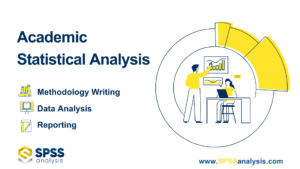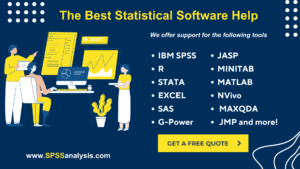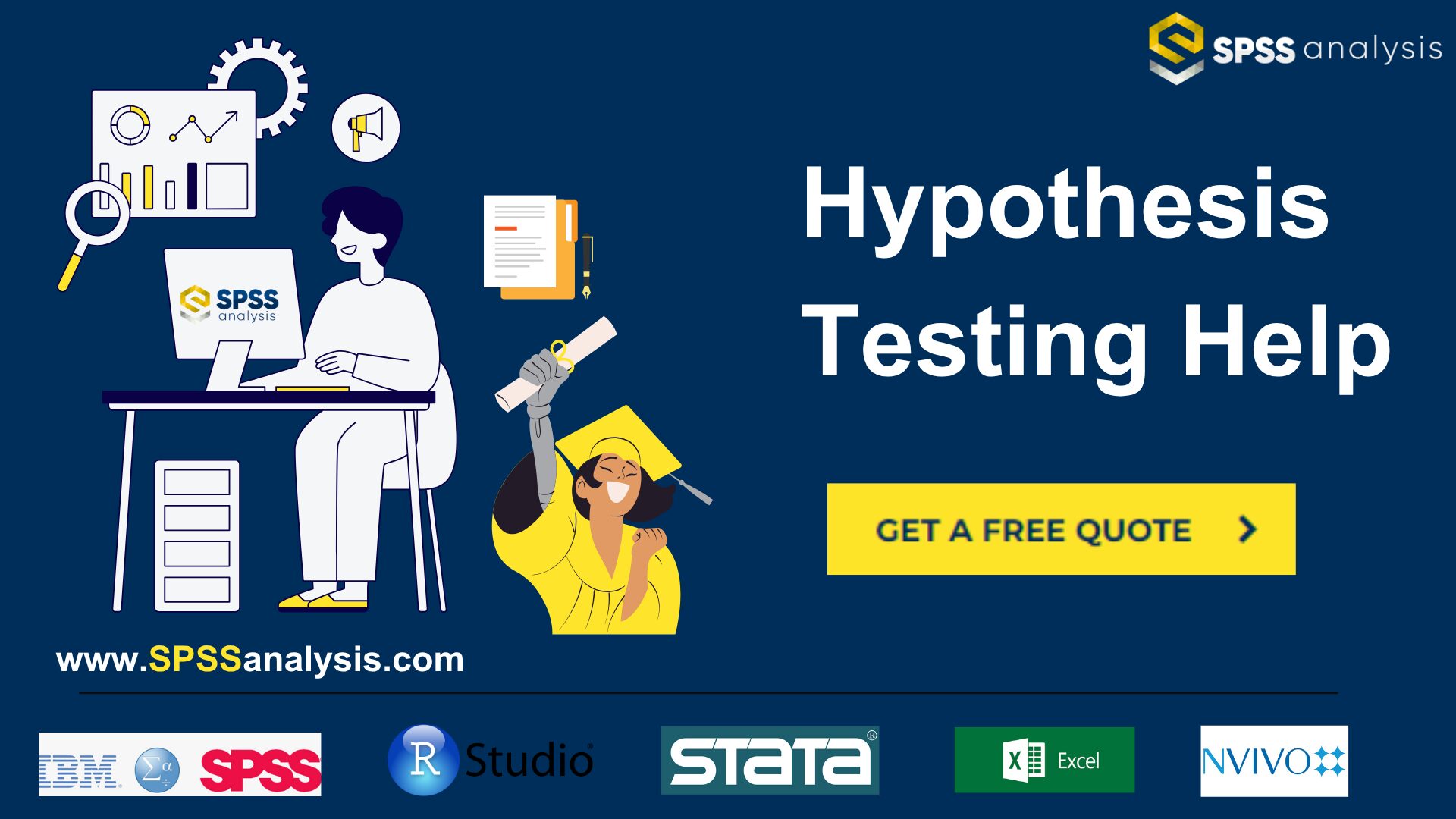Hypothesis Testing Help
Hypothesis Testing Help: Elevate Your Research with Our Customized Data Analysis, Methodology, and Results Writing Services. Specializing in SPSS, R, STATA, JASP, Nvivo, and More for Comprehensive Assistance.
Top-Tier Statisticians 👩🔬 | Free Unlimited Revisions 🔄 | NDA-Protected Service 🛡️ | Plagiarism-Free Work 🎓 | On-Time Delivery 🎯 | 24/7 Support 🕒 | Strict Privacy Assured 🔒 | Satisfaction with Every Data Analysis ✅
Our Expertise Recognized by Students at Leading Universities:




















Statistical Hypothesis Testing Help
Statistical data analysis and writing assistance is a comprehensive service tailored to meet the specific needs of your academic research, ensuring that you receive expert support in the following key areas:
- Methodology Writing: We develop a detailed plan for your research approach, outlining the statistical methods to be used in your study. This foundational step ensures that your research is built on a robust methodological framework.
- Data Management: Our services include importing your data into the preferred statistical software, recoding variables to suit analysis requirements, and data cleaning to ensure accuracy and reliability. This process prepares your data for meaningful analysis, setting the stage for insightful findings.
- Data Analysis & Hypothesis Testing: Whether your research requires quantitative data analysis, qualitative data analysis, or a mixed design, our experts are equipped to handle it. We apply appropriate statistical tests for your hypothesis and techniques to analyse your data, uncovering the patterns and insights that support your research objectives.
- Results Writing: We present your findings in a clear and academically rigorous format, adhering to APA, AMA, Harvard, or other academic styles as required. This includes preparing tables and graphs that effectively communicate your results, making them accessible to your intended audience.
Hire a trusted statistician today, and publish with total confidence — Get a Free Quote Now!
How Statistics Support Service Works
Hypothesis Testing Help
Hypothesis testing is at the heart of sound research. Whether you’re writing a dissertation, designing a clinical trial, or conducting market analysis, you need to make clear claims about your data and back them up with evidence. But for many students and professionals, hypothesis testing feels intimidating — full of complex terminology, multiple steps, and unforgiving assumptions.

It’s one thing to learn the theory in class; it’s another to apply it to your own messy, real-world data and explain it clearly in a report or paper. This is why so many researchers, students, and businesses look for expert hypothesis testing help: to avoid critical mistakes, gain confidence, and deliver results that stand up to scrutiny.
✅ Ready to get started? Fill out our form for a Free customised quote, and get help from an expert statistician— stress-free.
What Is Hypothesis Testing?
At its core, hypothesis testing is a method for deciding whether the pattern you see in your data is strong enough to generalize to a larger population. It gives you a framework to make decisions with measurable risk, rather than guesswork.
In practice, hypothesis testing involves:
- Stating a null hypothesis (H₀), which is usually a statement of “no effect” or “no difference.”
- Stating an alternative hypothesis (H₁ or Ha), which is what you want to test for — a difference, effect, or relationship.
- Choosing an appropriate test statistic (e.g., t-test, ANOVA, chi-square).
- Calculating the test statistic and comparing it to a critical value or using a p-value to decide whether to reject the null hypothesis.
- Interpreting what that decision means in the context of your research.
This is simple in theory but can become complicated quickly when real data don’t fit textbook examples.
Why So Many People Struggle With Hypothesis Testing
A major source of confusion is that choosing the right test depends on multiple factors:
- How many groups or variables you have.
- Whether your data is categorical or numerical.
- Your sample meets assumptions like normality and equal variances.
- Whether you have paired or independent samples.
Many students remember only the basic examples and get stuck when faced with unique study designs. Others struggle to interpret p-values correctly or to communicate the practical significance of their findings.
Add tight deadlines and unfamiliar software to the mix, and it’s easy to see why hypothesis testing causes so much stress.
✅ Ready to get started? Fill out our form for a Free customised quote, and get help from an expert statistician— stress-free.
The Risks of Getting Hypothesis Testing Wrong
A flawed test choice or misinterpretation can invalidate your results. Common errors include:
- Using a parametric test when the data violate normality assumptions.
- Running multiple tests without adjusting for increased Type I error.
- Ignoring effect size and relying solely on p-values.
- Misunderstanding the difference between statistical and practical significance.
- Reporting results poorly, with incomplete tables or inconsistent notation.
These mistakes can lead to poor grades, rejected papers, or flawed business decisions.
What Good Hypothesis Testing Help Includes
A credible hypothesis testing expert does more than run a test in SPSS or R. They clarify your research question, ensure your data is suitable, pick the right test, run it properly, and explain the output in plain language.
At SPSSanalysis.com, we provide step-by-step support:
- Clarify your hypotheses: We check if your null and alternative statements match your research aim and variables.
- Check assumptions: We run diagnostics to see if your data meet the conditions required for a valid test.
- Choose the right test: We recommend and justify the best method for your situation — parametric or non-parametric, independent or paired, one-tailed or two-tailed.
- Run and validate: We conduct the test in SPSS, R, or STATA, double-check the calculations, and check for outliers that might distort results.
- Explain the results: We translate statistical output into clear sentences you can use directly in your methods and results sections.
This level of support removes guesswork and helps you present findings that are accurate and defensible.

✅ Ready to get started? Fill out our form for a Free customised quote, and get help from an expert statistician— stress-free.
Common Hypothesis Tests — And When to Use Them
Here’s a brief snapshot of popular tests and the typical questions they answer:
- One-sample t-test: Is the mean of my sample different from a known value?
- Independent samples t-test: Do two independent groups differ in their means?
- Paired samples t-test: Is there a mean difference within the same group before and after an intervention?
- ANOVA: Do more than two groups differ in their means?
- Chi-square test: Is there a significant association between two categorical variables?
- Correlation and regression: How strong is the relationship between two continuous variables?
Knowing when each test applies — and when a robust alternative might be better — is key to valid conclusions.
How We Handle Assumptions and Exceptions
Real data often break textbook assumptions. Many students run a t-test on data that’s highly skewed or use ANOVA without checking variance homogeneity. This can distort your results.
We help you:
- Test normality with Shapiro-Wilk or Kolmogorov-Smirnov.
- Check equal variances with Levene’s test.
- Use robust or non-parametric alternatives like Mann-Whitney U or Kruskal-Wallis when needed.
- Document these choices so your professor or reviewer sees your analysis is transparent and appropriate.
This builds trust in your results and strengthens your discussion section.
Why Effect Size and Practical Significance Matter
Many papers report p-values but forget to address whether the observed effect is meaningful in real life. A tiny p-value doesn’t always mean a big impact.
We calculate and interpret effect sizes (like Cohen’s d or eta squared) and provide confidence intervals so you can discuss both statistical and practical significance. This is essential for academic credibility and for making sound business or policy decisions.

Presenting Hypothesis Testing Results Properly
A polished presentation of your results shows professionalism and helps readers follow your logic. We help you format:
- Clear, labeled tables in APA or your journal’s required style.
- Clean figures (boxplots, bar charts, scatterplots) where visuals help tell the story.
- A written results section that states the test statistic, degrees of freedom, p-value, and effect size, all in plain language.
This makes your paper or report easy to read and more likely to pass peer review or supervisor approval.
How to Get the Most from Hypothesis Testing Help
To provide you with accurate, efficient support, it helps to have:
- A clear research question or hypothesis statement.
- A clean dataset, or at least the raw data and variable descriptions.
- Any instructions from your professor, supervisor, or target journal.
- Your deadline and whether you need urgent turnaround.
✅ Ready to get started? Fill out our form for a Free customised quote, and get help from an expert statistician— stress-free.
How Fast Can You Get Hypothesis Testing Help?
Time pressure is common, especially near submission deadlines. We deliver most hypothesis testing projects in 2–5 days, with rush options for urgent cases. When you request your free quote, just tell us your timeline so we can match it.
Why Choose SPSSanalysis.com
We combine years of practical experience with a clear, supportive approach. Our experts don’t just produce output — they teach you what it means, how to write about it, and how to defend it during a viva, peer review, or client presentation.
Students, researchers, and businesses come back to us again and again because they trust our commitment to clarity, precision, and confidentiality.
✅ Ready to get started? Fill out our form for a Free customised quote, and get help from an expert statistician— stress-free.
Take the Next Step Toward Stress-Free Hypothesis Testing
Hypothesis testing doesn’t have to be overwhelming. With the right help, you can run the correct tests, understand your results, and explain them with confidence.
✅ Ready to get started? Fill out our form for a Free customised quote, and get help from an expert statistician— stress-free.
Stay connected with SPSSanalysis.com on LinkedIn for the latest updates and insights!





